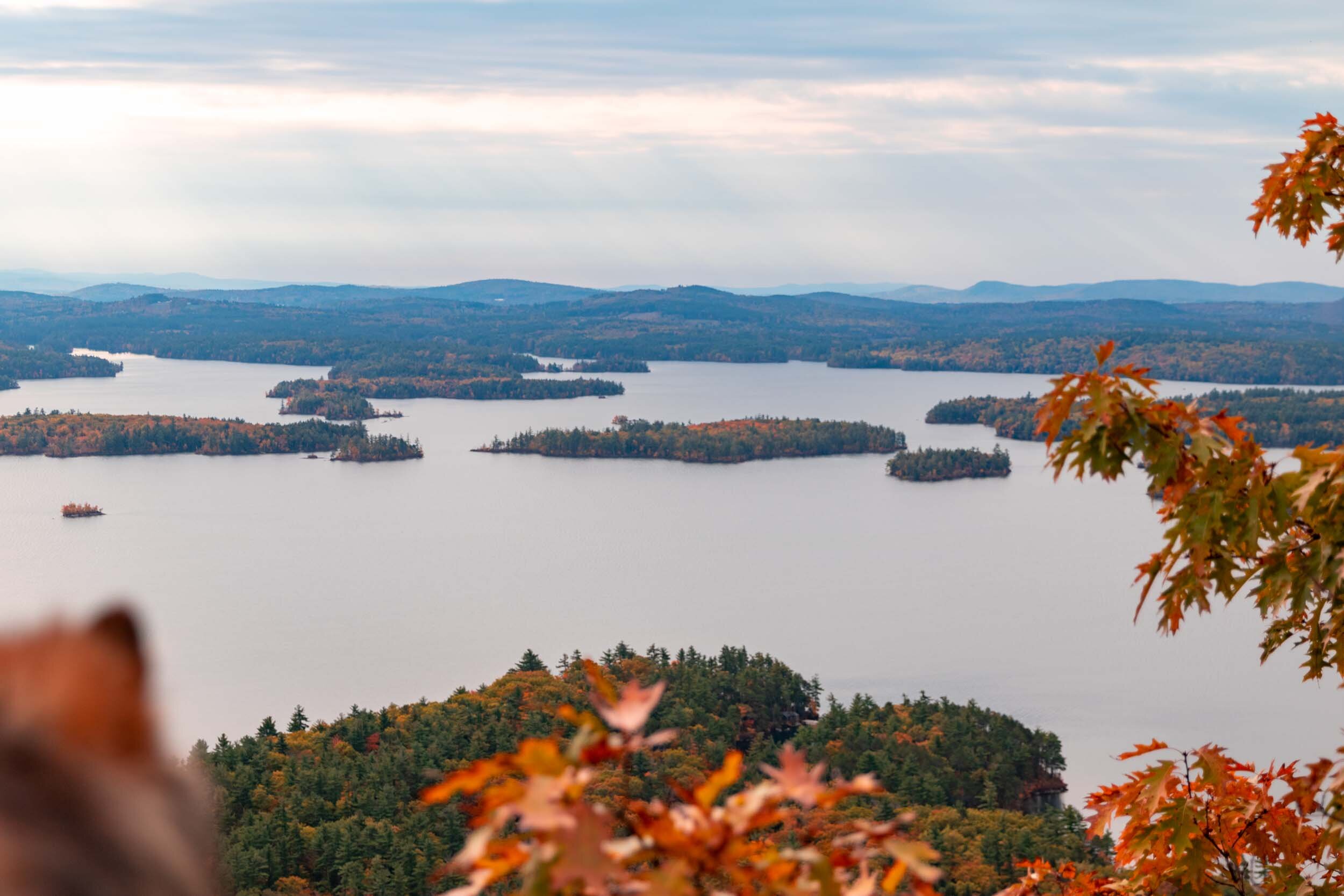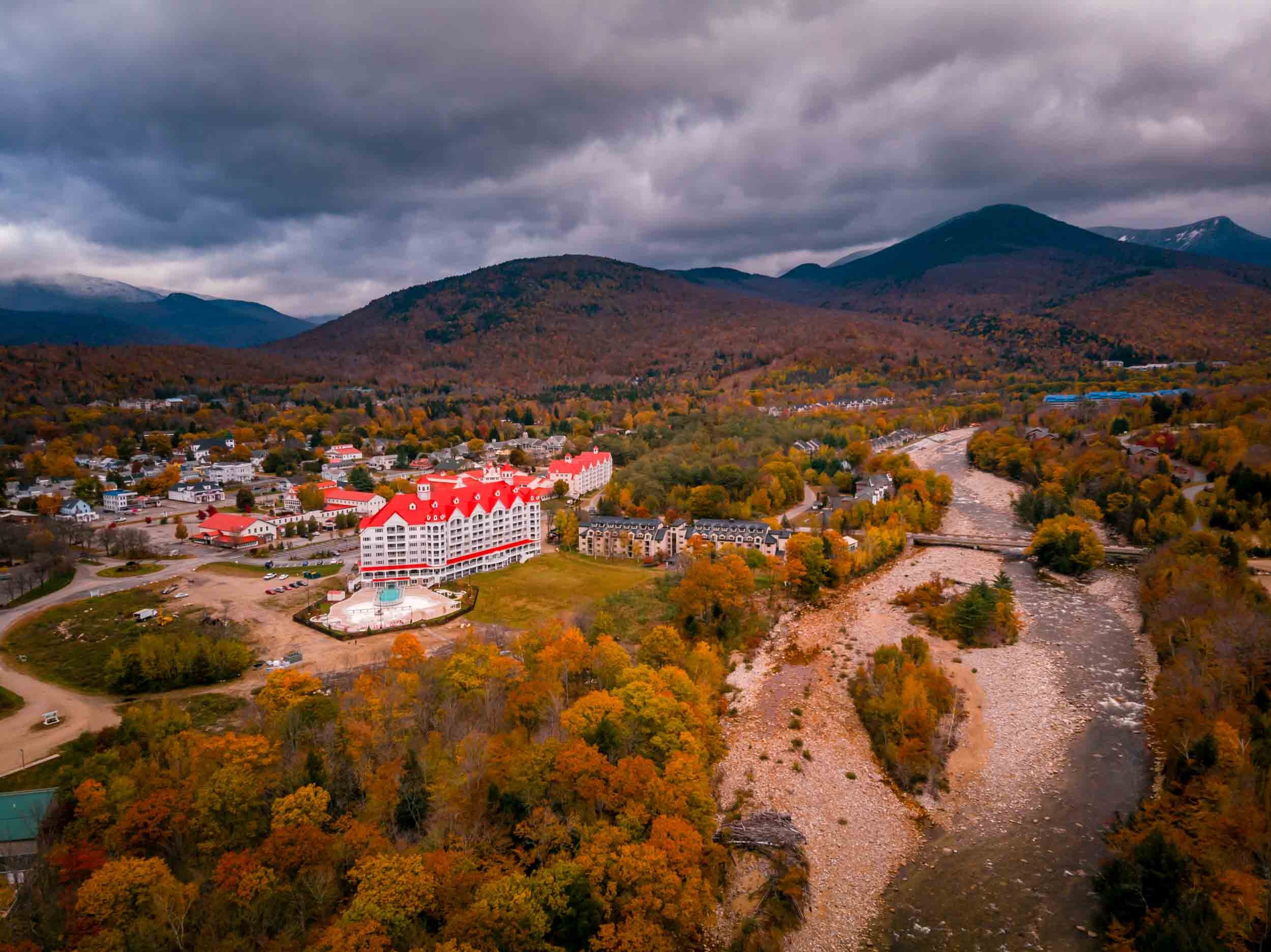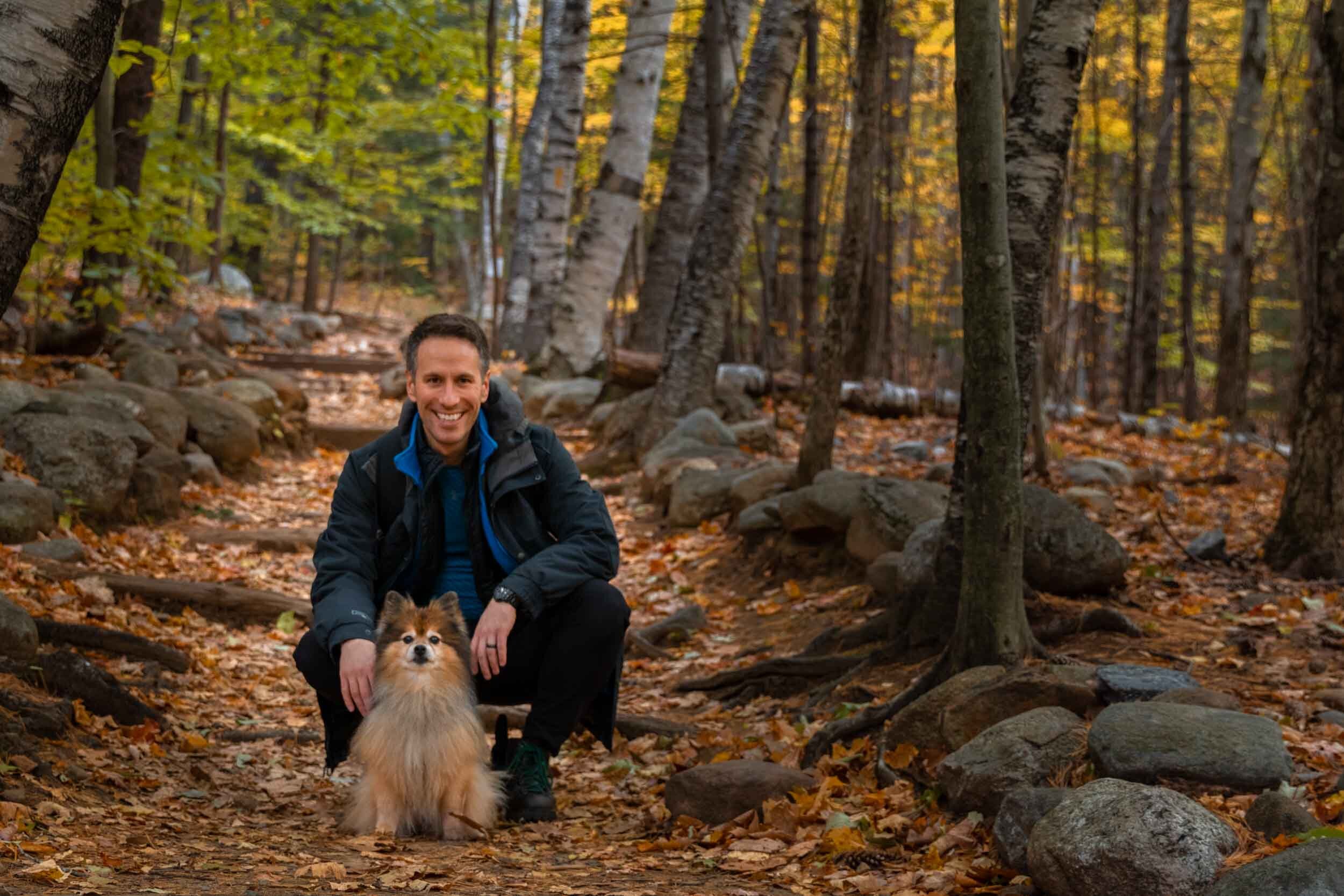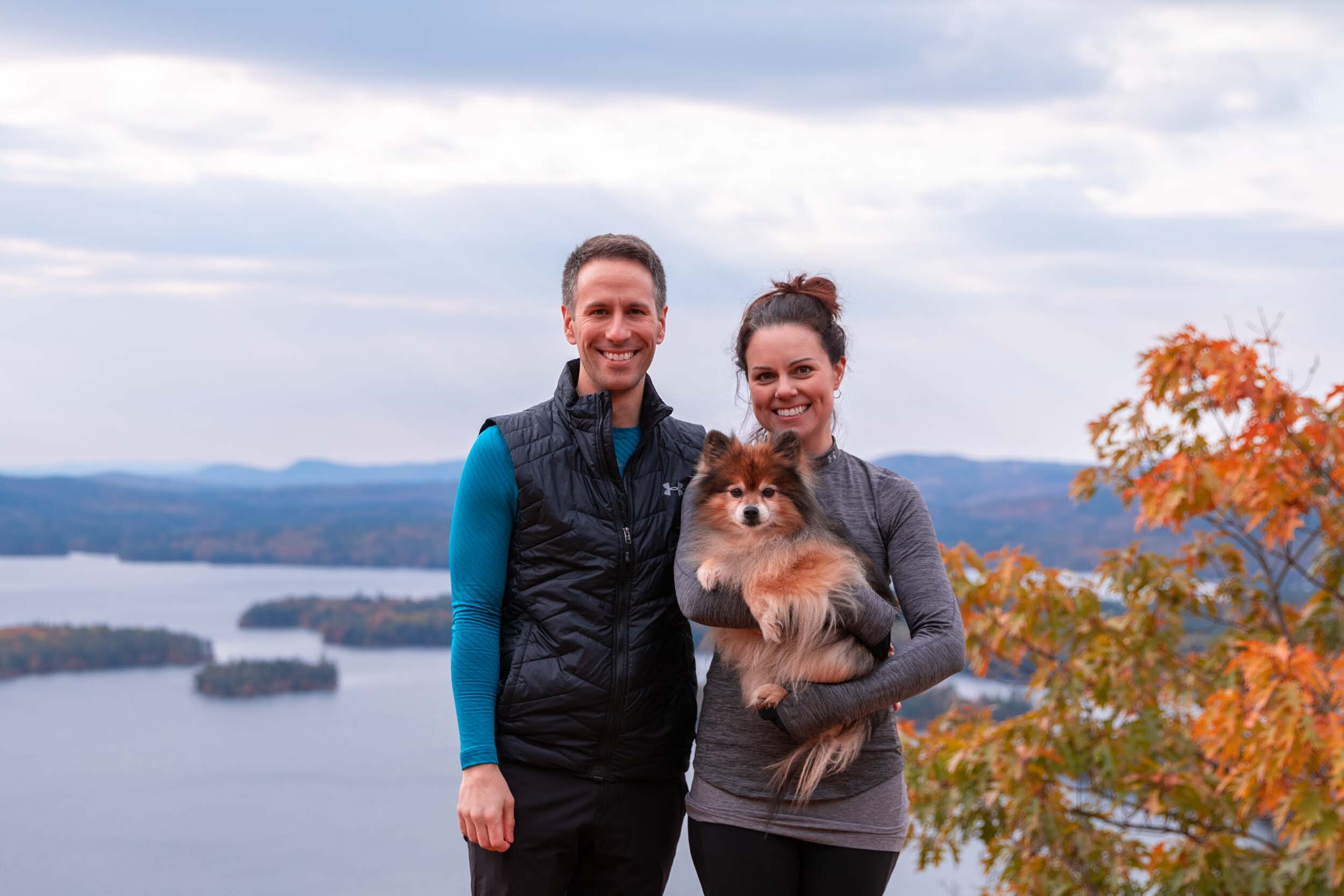Dying Leaves!

This past week, Wiff and I drove up to New Hampshire to look at the fall foliage.
Leaf Peeping—as it’s colloquially known—is a time-honored east coast tradition where you drive up to the mountains and watch leaves die. Basically you watch trees get upset that they can’t make chlorophyll and tell their leaves, “To HELL with you.”
Every fall, deciduous trees turn into frustrated middle aged men who also can’t produce chlorophyll. The get made they can’t get their liquids up and then sulk all winter.

By the time we got there, it was clear that we’d missed peak leaf peeping season. We checked the online forecasts in the weeks leading up to our getaway to ensure we got there during peak foliage season but, sometime between the moment we hopped in our car and the 6 hours it took to drive there, the trees had shed much of their fall coverage. They were already switching to stick season, all the rage this season.
The trees still had 50-75% of their dying leaves still hanging from the tree, but the leafless trees were clearly visible. They stuck out like the tall kid who hit puberty earlier than all the other kids at school. They look a little different. Totally awkward. And there’s nothing they can do until all the other trees catch up. And, even though they can’t play a lick of basketball, they get picked first because everyone needs a Center.
Some people would regard this as a failure. “We didn’t get to see the leaves at just the right moment in their long drawn-out death. Our trip is ruined!” “We should have come earlier when the leaves were less dead but still very much in the process of dying.” “The trees didn’t cooperate so I chopped them all down.” What?

We, being the easy-to-please recreational dying leaf lovers that we are, decided to make the best of it. Instead of focusing on what we’d lost, we looked at what we gained: a shoulder-season perspective. A foreshadowing of winter, arguably the best season.
I like the term shoulder season. It’s a handsome way of describing the time in relation to another time. But it’s inaccurate. The shoulder season is just the end of one and the beginning of another. It’s more of a valley between peak seasons. My shoulders aren’t valleys. They aren’t really peaks either, but do you see where I’m going with this. I think we just like it because of its alliteration.
This simple change in perspective—focusing on what we’d gained instead of lost—allowed us to enjoy everything about the moment. It’s a simple mental flip, really. And, brains being the problem solving machines they are, all it takes is asking yourself that one question: do I feel luck…. Wait no. It’s what have I gained from this opportunity?
Try it. Think of a recent event that didn’t turn out exactly as you planned. What did you gain from the situation?
I wonder how far we could take this line of thinking? Obviously we can’t flip everything around. “Boy, I’m homeless and hungry, but at least I’m not saddled with a mortgage and heart disease.” Alright, Pollyanna, get back in your box.
“I gambled away all my money, but at least my bookie’s kids will have a great Christmas!” Okay, wow. Where are we finding these sad examples?? Please tell me there’s another, less serious, example out there?
“When I pulled that trigger, little did I realiz—“ Okay, I think we get the point…
Maybe that’s too far. But what about something a little less dire, but a bit more serious than my mail was 10 minutes late today, grr!

“My girlfriend dumped me, but at least now I have more time to focus on becoming a better man. All that money I would have spent on dates and gifts can go towards my gym membership and doing my laundry more than twice a month!”
There we go! :
There are obviously limits to its use as well. We can’t go thanking the world for the problems it hands left and right. But we can open our view of success to more than one option.
Lemme explain.
One way to approach our New Hampshire getaway: this trip will be a success if and only if we’re at peak leaf season, the leaves are yellow to orange, with a splash of red, and if I don’t gain 12 pounds despite only eating pasta and pizza and wine at the Italian restaurant in our hotel.
That’s a pretty limited scope of success. If even one of those things doesn’t happen, the entire trip is a failure.
An alternate approach: this trip will be a success as long as no one dies. Although, even then, you could thank the world for giving you a lesson to be prepared for a black bear attack next time.
You get the point?
Further still, what if we stopped measuring things in terms of good and bad, success and failure, as a function of our expectations. Yeah, if someone gets food poisoning, that’s terrible. But barring the unlikely things, why what if we opened ourselves up to multiple definitions of success?

This whole article is just a giant reminder for myself not to get too caught up in how reality measures up against my expectations. I have high, often perfectionist expectations, and measuring reality against will make me an unhappy stress ball. Why not just relax, have fun, and enjoy what each moment brings? Sure, if the waiter fucks up your order tell him, but don’t let that ruin your whole meal. Thank him for giving you the opportunity to practice speaking up for yourself.
And yeah, next year I’ll plan our trip for a few weeks earlier in the season so we can see the leaves dying at just the right moment.
What about you? What do you get stressed out about? What would happen if you adjusted your expectations? Let me know in the comments below!